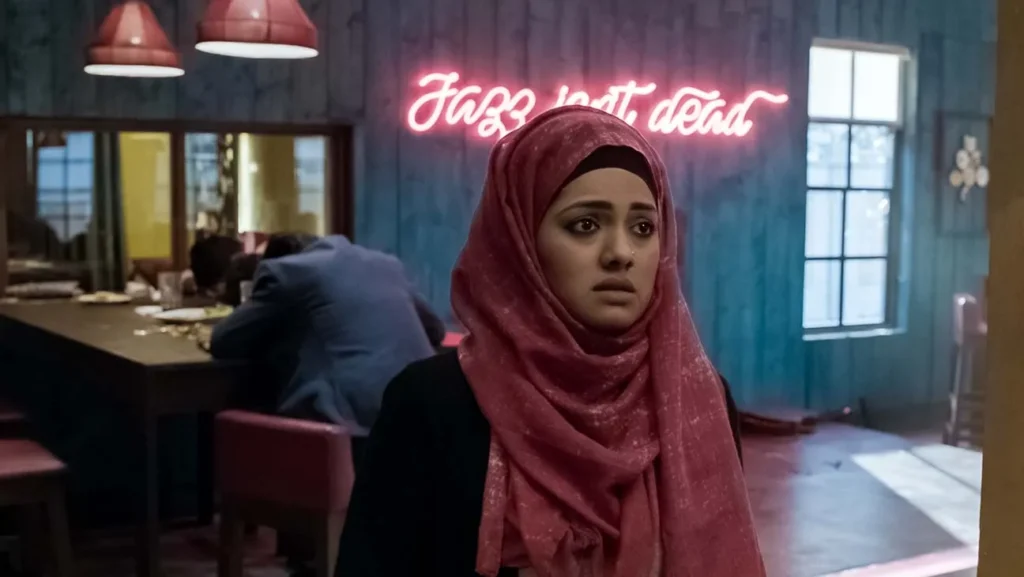
Afternoon
A good psychoanalyst is mostly silent. They listen while their patient talks and talks and talks. Eventually, anyone who has been granted that kind of freedom in self-expression becomes unwittingly naked before a perceptive witness: what floats to the surface of all the chatter, the breaths between spoken thoughts, the pauses and other verbal punctuations is an image of preoccupations.
Do they keep coming back to the same problem or subject? Are they worried about work or love life? How do they make sentences? Where do they stumble, when do they digress? What verbal inflections, and when? Do words repeat themselves? Through language alone does a person frame their concerns.
But if a therapist is intentionally quiet for professional reasons, Taiwanese actor Lee Kang-Sheng seems simply taciturn by nature: His apparent reticence onscreen has long made him a captivating performer in Tsai Ming-liang’s frequently musically inclined films. “Afternoon,” however, consists entirely of talking; it runs over two hours but tells no story except its own.
In its first hour especially, this film is like watching one side of an extended conversation; Lee is Tsai’s rock-steady anchor here (as ever), his impassive sounding board as Tsai again takes off on another freely associative monologue (or three); because it’s still structured as four very long takes, nothing else happens around these sudden starts and stops except silence itself.
Not that “Afternoon” doesn’t cannily embody its own staginess at times: “Weren’t we supposed to talk about ‘Stray Dogs’?” Lee asks Tsai at some point in this real-time gabfest; no idea how many hours into their daylong talk that question comes up. Because such questions are much more apt than any answer might be anyway not unlike Tsai sharing with Lee his recent contemplation of death (or was it a confession?) Lee’s poker face is very good.
Crew members enter the frame to change film stock or ask if they can eat something; Tsai, in response to one off-camera question that actually breaks his rhetorical stride, suggests that he might be dying. (It’s worth noting that Tsai has claimed this before.) Whether or not this is the first time he’s told Lee about it, we don’t know.
Tsai talks at length on Lee’s long-suffering behalf about life and afterlife and being gay and heaven and hell all subjects of interest to him since at least 2003’s “Goodbye, Dragon Inn” but mostly about Lee as both soulmate and workmate: “I felt like I was going to lose you,” Tsai tells him at one point, meaning that had he neglected to inquire whether Lee wanted lunch, they would not have had this talk today.
Tsai frequently seems here like a man who did not realize how much he had missed someone until he saw them sitting across from him again; what viewers learn from the movie in its final third is that what dying of thirst in a studio desert Straub/Huillet are for me, death obsessed retired filmmaker Tsai is for alive and kicking still making actor Lee. That their work together these past 20 years constitutes one of cinema’s great acting collaborations remains a critical truism; so few have yet written anything resembling a history of it.
So when no one else will do it for you even someone as notoriously self-serious as Tsai should have known better than to say such things aloud: As often happens with people who spend too much creative energy talking about themselves all day long lecturing others about love or other people or telling strangers on public transportation “You look lost” out loud well.
So when no one else will do it for you even someone as notoriously self-serious as Tsai should have known better than to say such things aloud. “Afternoon” is slow in its tender, repeated articulation of how much he loves him, but it’s not too long; Tsai has always had a feel for the right length for these kinds of images, and if this were truly the last film of his life (or Lee’s), there would be many more words.
This is not a film for those unacquainted with Tsai and Lee’s work. It’s a movie for cinephiles who enjoyed “Stray Dogs.” Some have called “Afternoon” more of a “DVD extra” than a real film, but I disagree like other Tsai films, it establishes its own slow representation of time and the way human interactions and performances play out. Like with other Tsai films, we become acutely aware of the space in the film the lush greenery that peeps into the windows, a sunny contrast to the muted dilapidated interiors.
The results are sublime, reminiscent of the intimacy of “My Dinner with Andre” and the thinking through ideas processes of “This is Not a Film.” “Afternoon” is not Tsai’s swan song, nor is it a footnote. Like the rest of his oeuvre, we struggle to define his cinema in any meaningful manner but still remain captivated by its beauty.
Watch Afternoon For Free On Gomovies.
.jpg?w=1024&resize=1024,1024&ssl=1)
.jpg?w=1024&resize=1024,1024&ssl=1)
.jpg?w=1024&resize=1024,1024&ssl=1)
.jpg?w=1024&resize=1024,1024&ssl=1)
.webp?w=1024&resize=1024,1024&ssl=1)
.jpg?w=1024&resize=1024,1024&ssl=1)
.jpg?w=1024&resize=1024,1024&ssl=1)
.jpg?w=1024&resize=1024,1024&ssl=1)